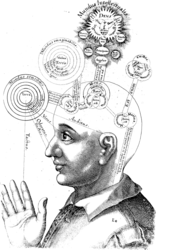Wikimedia program leaders can use surveys for many reasons:
| – |
|
Surveys are an excellent strategy for measuring a group’s interests, behaviors, learning methods and other feedback. They are windows into the mind of the movement and they give us insight we otherwise would not have. These insights are gathered from survey questionnaires, where asking questions the right way becomes very important.
Writing a good questionnaire takes time. Drafting the questions and asking colleagues or fellow volunteers to provide feedback are important steps. Along each step, we might ask ourselves: Are we asking the right questions for our survey goals? Are we asking enough questions to give us the full picture? Are we asking too many questions which might discourage respondents from finishing the questionnaire?
A few months back, the Program Evaluation & Design team created a learning module called Designing Effective Questions aimed at providing theories behind how surveys work with examples on how to improve the quality of questions. In addition to the learning module, we are pleased to announce upcoming events and resources for anyone interested in writing surveys to measure their program outcomes:
1. Survey pilots
Need to prepare a survey? Have an event you would like to assess with a survey? Need to find a better tool for surveys? Email us! We work one-on-one with community members who request assistance with preparing and collecting survey data. For interested groups or individuals, we have a pool of accounts to give you access to the Qualtrics online survey platform. Qualtrics is a good and easy-to-use tool for writing and collecting survey data with functionality beyond google forms. If you are planning a survey and are interested in trying out the Qualtrics platform, email us at eval@wikimedia.org.
2. Let’s talk about surveys: Virtual meetup – June 12 from 4-5 p.m. UTC
On Thursday, June 12th, the program evaluation and design team will be joined by Daria Cybulska (WMUK) and James Hare (WMDC) who will share their recent experiences piloting survey tools for evaluating their programs! Jaime Anstee, Ph.D., and the program evaluation team will also provide a brief overview of the survey tools and resources available. Participants can join the google hangout or can watch via YouTube livestream. Join us! If you are unable to make it, don’t worry! The video will be available for you to watch later.
3. Wikimedia Question Bank in development
One of the biggest requests we receive is for sample surveys. One problem with sharing specific surveys is that different program leaders write their questions with various objectives in mind. So rather than a large pot of surveys with various scopes and sizes, we are instead building a browsable pool of survey questions that allows anyone to choose the questions that best fit their measurement goals. We have started with a group of questions that we receivedfrom the community through survey pilots. Anyone will be able to submit new questions to the bank or have discussions about the questions already in the bank. This will be a useful tool which we hope will help in preparing surveys. Look for the first entries in the Survey Question Bank in our portal in the coming weeks!
Edward Galvez, Program Evaluation Associate of Learning & Evaluation
Feel free to reach out to us at anytime at eval@wikimedia.org
Watch our News page for upcoming events and announcements. Follow us on Twitter @wikieval.
Join our Facebook group.

Can you help us translate this article?
In order for this article to reach as many people as possible we would like your help. Can you translate this article to get the message out?
Start translation


